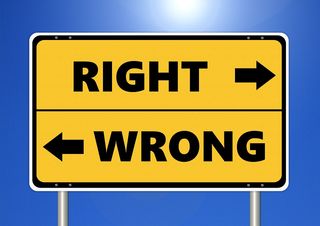Environment
Nurturing The “Better Angels Of Our Nature”
Treating others with respect, compassion and reverence could turn us all around.
Posted January 1, 2018

As we enter 2018 and reflect on 2017 there seems to be an abundance of recent examples of people behaving badly…really badly! The explosion of sexual harassment stories perpetrated by powerful men victimizing female co-workers and subordinates has dominated the press since the Harvey Weinstein story came to light several months ago. This horrific problem was highlighted much earlier this past year with the famous “caught on tape” bus conversation between Donald Trump and Billy Bush. And speaking of bad behavior among famous politicians, many of them have provided examples of egregious conflicts of interest, breathtaking selfishness, and in-your-face corruption, putting on a clinic for these terrible qualities in recent months, too. The many other examples of the egregious shenanigans of celebrities in sports, entertainment, and other high profile fields and industries only further underscore that even in modern times where everything seems to be well monitored by video cameras or online records, corrupt and assaultive behavior persists.
While there are no easy answers for turning this trend around, there are at least some evidence-based research strategies and theories to help often some hope that we can nurture the “better angels of our nature,” as Abraham Lincoln so elegantly stated during his first inaugural address.
Observational learning theory suggests that people tend to model their behavior after important and high profile others. This is why it is so important that well-known people behave well. Whether they are famous and nationally recognized politicians, Hollywood celebrities, sports stars, industry titans, and so forth, people watch and reproduce the behavior of prestigious and famous people. Whether these individuals like it or not, they provide a model for how to behave in the world, and others will observe and then follow suit. And when these people behave poorly, it is important that they are held accountable and appropriately punished (or at least not rewarded) so that others will see that problematic behavior is dangerous to their own security.
Social comparison theory suggests that we evaluate our own behavior by watching others and adjust our behavior according to both upward and downward comparisons. So, if we want people to behave well we must surround them with those who do likewise. Social comparisons don’t rely only on famous people portrayed in the media but include those who live, work, and play with us in our daily lives. Creating cultures where expected positive behavior is highlighted and rewarded at work, school, and elsewhere can help develop environments that support good behavior.
In my own research and writing on ethics, I conclude that if people carefully embrace the treatment of others with respect, compassion, and reverence then we can make very good progress in building a community and society where people behave better. Of course, no one is perfect and we all fail to live up to lofty goals, ethical principles, and good models of behavior. Nonetheless, if we consistently and fully embrace fundamental ethical values, that most people would actually happily agree to (e.g., treat others as you wish to be treated) then we might be better able to steer this ship that has apparently sailed well off course.
So, what do you think?
Copyright 2018 Thomas G. Plante, PhD, ABPP


